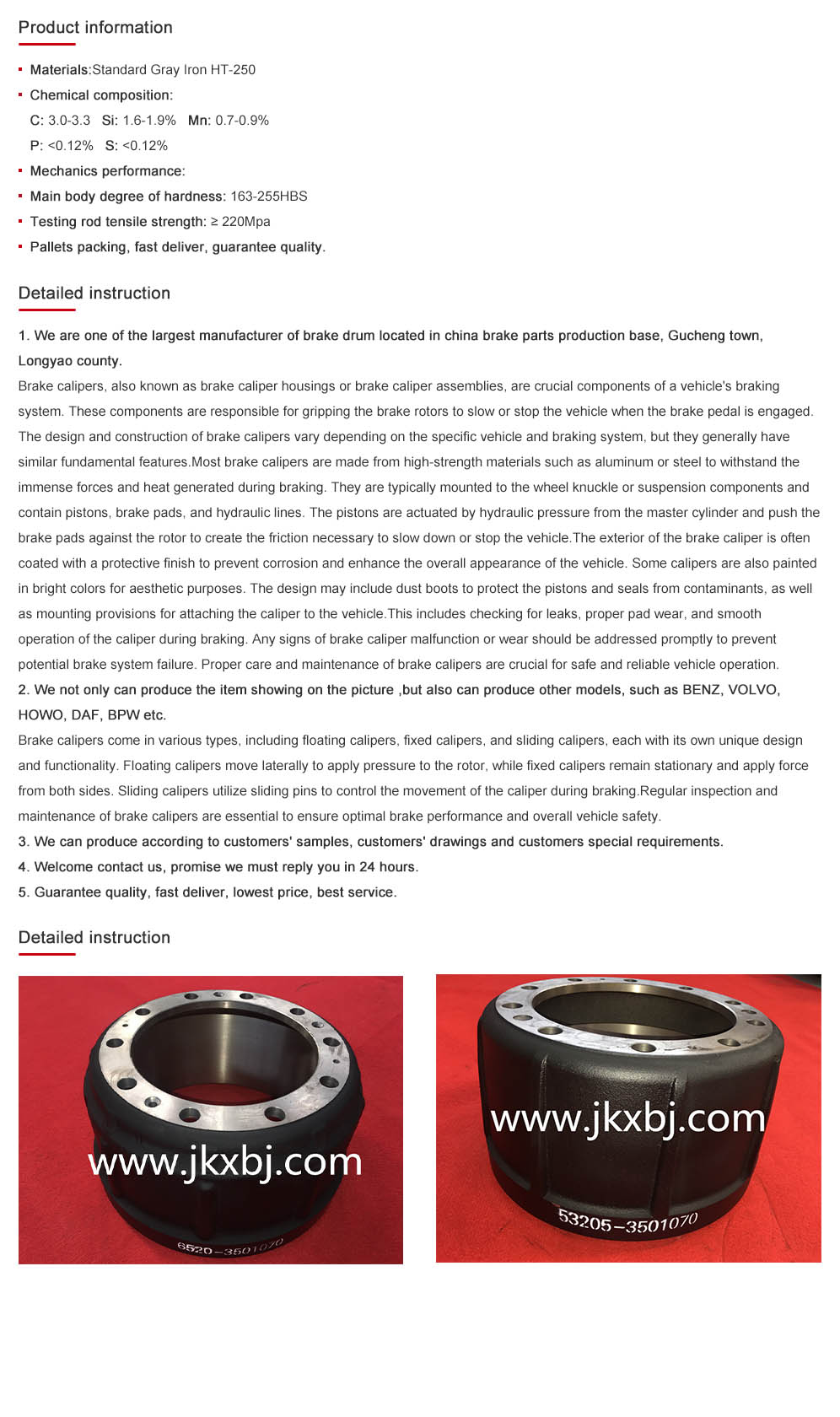Nov . 12, 2024 03:30 Back to list
brake drum sound
The Mysterious Symphony of Brake Drum Sound
In the world of automobiles, the sound of a vehicle can tell us a lot about its condition and performance. One often overlooked aspect is the sound produced by brake drums. While most drivers may focus on the engine's roar or the soothing hum of the tires on the road, the brake drum sound serves as a critical indicator of automotive health.
Brake drums work by providing a surface for brake shoes to press against, creating friction that slows down or stops the vehicle. The sound of brakes can vary significantly based on a variety of factors, including the type of vehicle, the condition of the brake components, and external environmental conditions. As such, the symphony of brake drum sounds can range from the reassuring to the alarming, instructing the discerning ear about potential issues.
The Mechanics Behind the Sound
When a driver presses the brake pedal, hydraulic pressure forces the brake shoes outward against the inner surface of the brake drum. This creates friction, and in turn, generates sound. Under normal circumstances, the sound should be relatively subtle, a mild hissing or whooshing that indicates effective braking. However, when sounds change, drivers should take note.
1. Squeaking A high-pitched squeak is typically a sign that the brake shoes or pads are worn down and may need replacing. Occasionally, this sound can also be the result of moisture or dirt on the brake components. If the sound persists, it’s wise to consult a mechanic.
2. Grinding A grinding noise often signals serious trouble. This sound occurs when metal comes into contact with metal, indicating that the brake shoes have worn away completely, and the backing plate is now grinding against the drum. Such a condition should not be ignored; it can lead to severe brake failure and potential accidents.
3. Thumping A thumping noise may suggest that the brake drum itself is warped or damaged. This can happen due to overheating or prolonged use, resulting in an uneven surface that disrupts the smooth operation of the brake shoes.
brake drum sound

4. Hissing If you hear a hissing sound when applying the brakes, it may indicate a brake fluid or air issue. This could point to a leakage or other fluid-related problem that could affect overall braking performance.
The Role of Maintenance
Understanding the sounds produced by brake drums underscores the importance of regular maintenance. A quiet environment when driving might suggest that everything is in good order, but the reality is that brake components require periodic inspections and servicing to ensure they function correctly. Regularly checking for wear and tear can prevent minor problems from escalating into hazardous situations.
One should also consider environmental factors that affect the sound of brake drums. For example, driving in wet or muddy conditions can lead to temporary changes in brake sound; moisture can cause temporary adhesion that might produce unusual noises until the brakes dry out.
Conclusion Listen to Your Vehicle
Being attuned to the sounds your vehicle makes can provide invaluable insights into its health. The sounds of brake drums, in particular, can be an early warning system for potential problems that could affect your safety. Rather than overlooking these auditory clues, drivers must take them seriously for the sake of their own safety and that of others on the road.
In a broader sense, the sound of brake drums is a small yet significant aspect of automotive symphony. It may seem quiet and mundane, but it plays an essential role in the safety ballet that occurs every time a vehicle is in motion. So, the next time you hear your brakes, whether in the city, on the highway, or in the quiet of a parking lot, pay attention. Your brakes may be playing a crucial tune, one that could very well be singing the song of maintenance needs or warnings.
-
Scania Brake Drums: OEM Quality for Optimal Safety & Durability
NewsAug.16,2025
-
R.V.I: Advanced Remote Visual Inspection for Precision
NewsAug.15,2025
-
Discover HYUNDA: Innovative Vehicles, Equipment & Solutions
NewsAug.14,2025
-
R.V.I: Unlock Advanced Insights & Real-time Performance
NewsAug.13,2025
-
Kamaz Brake Drum: Durable & Reliable for Heavy Duty Trucks
NewsAug.12,2025
-
Heavy Duty Iveco Brake Drum - Premium Quality & Safety
NewsAug.11,2025
